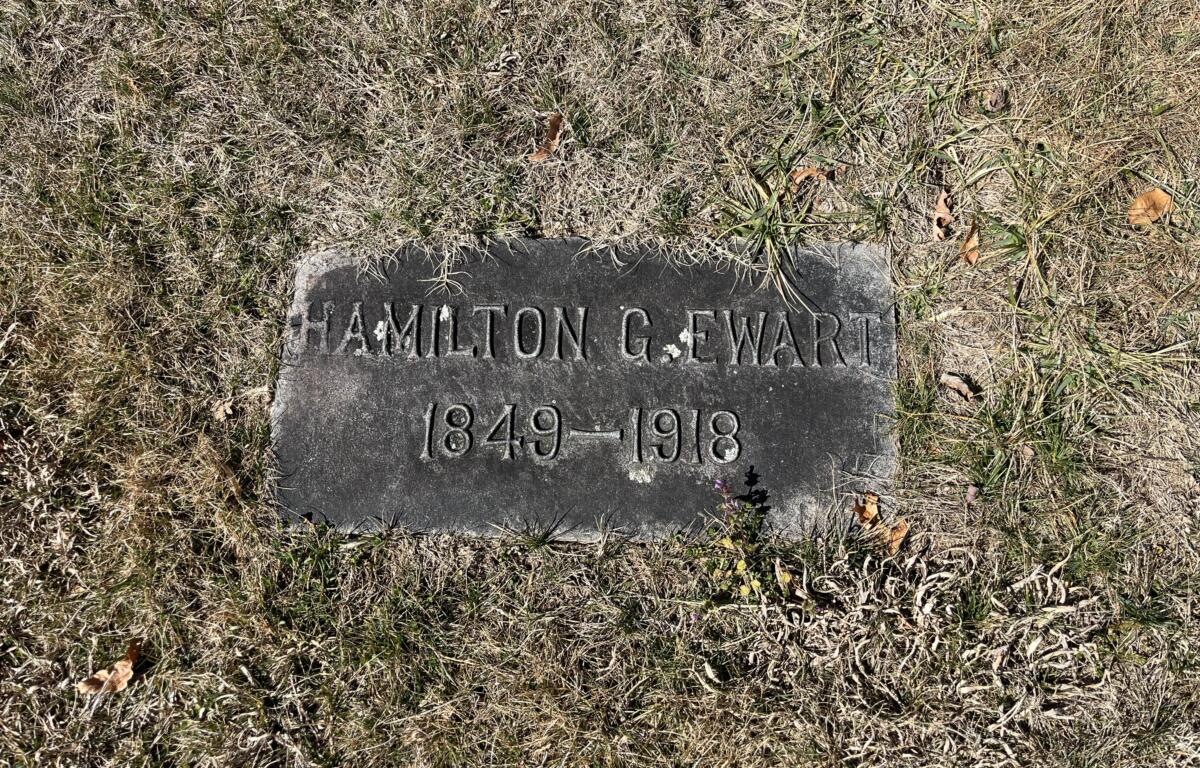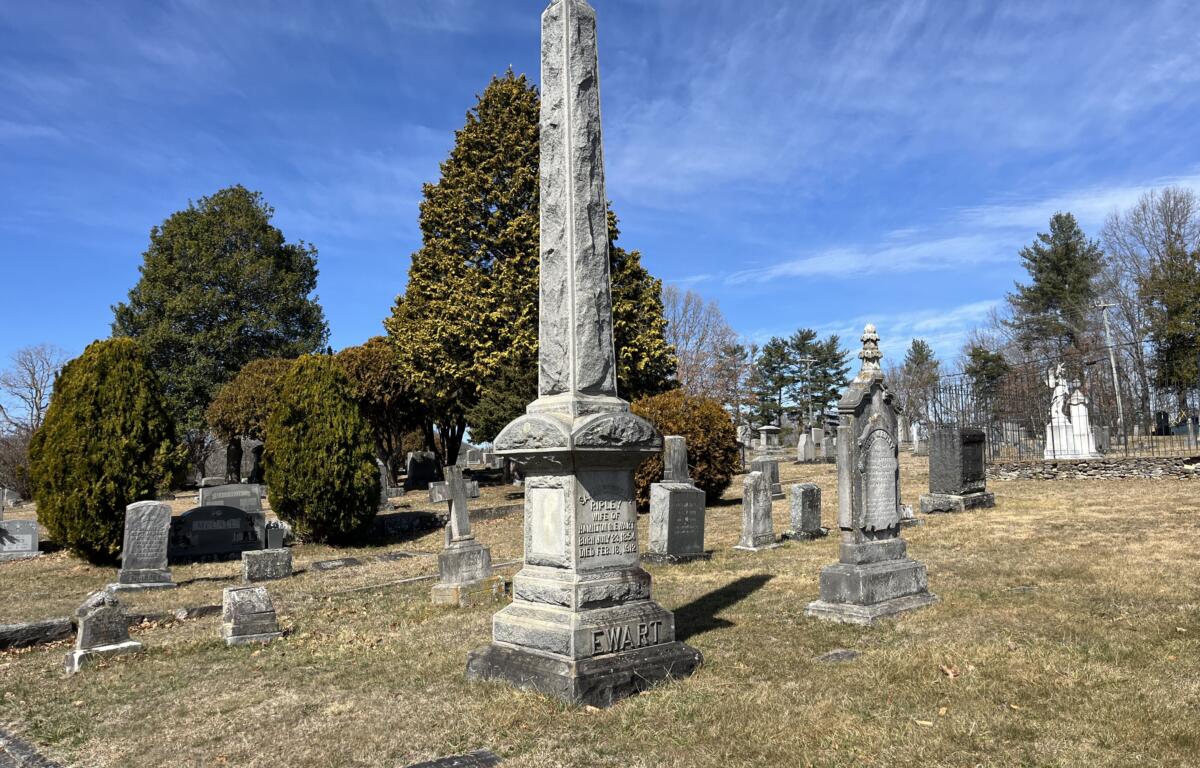EDITOR’S NOTE: Everyone has a story — some more well-known than others. Across Western North Carolina, so much history is buried below the surface. Six feet under. With this series, we introduce you to some of the people who have left marks big and small on this special place we call home.
___
Hon. Hamilton Glover Ewart (1849-1918) presided as the U.S. District Court Judge for the Western District of North Carolina, represented his constituency in congress and served as the mayor of Hendersonville.
The would-be representative was born to James Beckett Ewart and Mary Ann McMahon on Oct. 23, 1849, in Columbia, S.C. In his youth, Hamilton Glover Ewart attended private schools before his family relocated to Hendersonville, N.C. As a college student, Ewart took an interest in law, graduating from the University of South Carolina Law School in 1872 as the valedictorian.
Post-education, Ewart held various positions in the public square, both private and governmental. He maintained a law practice in Hendersonville while serving as the mayor from 1878-1879, state representative from 1887-1889, 1895-1897 and 1911-1913 and as a Republican U.S. Representative during the fifty-first Congress from 1889-1891.
When the first train arrived in Hendersonville, Mayor Ewart was waiting, giving an address to all who attended to witness the engineering marvel.

As a businessman as well, Ewart had diversified investments in the farming and mining activities in W.N.C. The Green River Zircon Mining Company supplied the precious gemstone to Thomas Edison as shown in correspondence between the two men.
Ewart’s greatest accomplishments were also his greatest failures. President William McKinley twice appointed the Western North Carolinian statesman to the position of judge for the U.S. District Court for the Western District of North Carolina in 1898 and 1899 respectively. The great honor, in both cases, was short lived as the Senate failed to confirm his nomination. Ewart’s federal judicial services concluded on June 7, 1900.
On Feb. 16, 1912, Ewart’s wife, Sarah Cordelia Ripley Ewart, died in Hendersonville, N.C. The couple, who had married on April 8, 1874, and had eight children together, six of whom survived to adulthood. Sarah was the daughter of Ewart’s stepfather, Col. Valentine Ripley. Perhaps attempting to leave the pain from the death of his wife behind, Ewart moved to Chicago, Illinois in 1916, where he subsequentially opened a new law practice.
Before he left for the Windy City, Judge Ewart wrote to the then governor of North Carolina, Locke Craig, to announce his intention to form a militia to fight the Mexicans if war broke out. This letter was likely sent due to growing suspicions America’s southern neighbor might join the Axis Powers in World War I.
After an unknown, yet short ailment, the Hon. Hamilton Glover Ewart died on April 28, 1918, in Chicago at the age of 68. His body was returned to Hendersonville to be buried at Oakdale Cemetery. His tombstone is humble, barely visible among the blades of grass. While a large obelisk stands for his wife, Ewart’s grave is a simple stone.
If you enjoyed reading about the Hon. Hamilton Glover Ewart, you make also like these articles:


